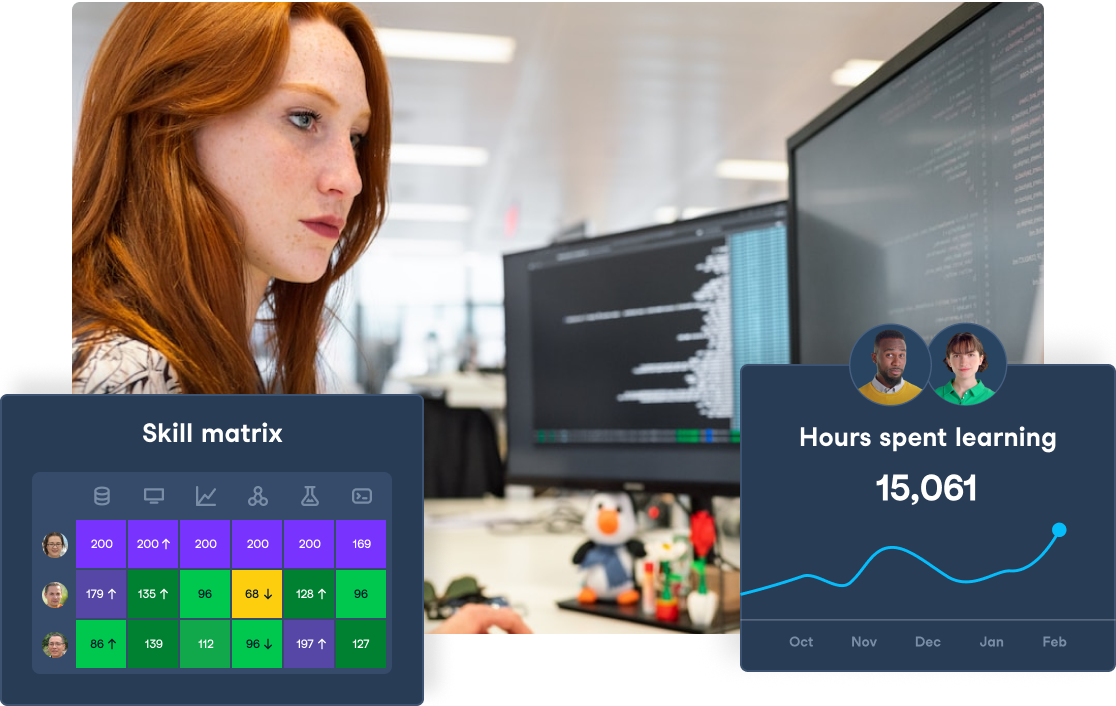Data Upskilling For Your Business
Enhance your team's data literacy and decision-making capabilities with DataCamp for Business. Access diverse courses, hands-on projects, and centralized insights for teams of 2 or more.

Our data personas were really important for helping us create demand amongst colleagues. It helped us really understand what learning they needed, and we could justify why we've given them some learning content over others based on their persona and their role. It also helped us in our communications because it helped us personalize our messaging and our approach. Our persona work helped us answer “What's in it for me,” because I guarantee you that's all people really care about. How is it going to help them be smarter, quicker, better, and more productive at their job? Part of the persona work really helped bring that to life for people.
Emily Hayward, Data & Digital Change Manager at CBRE
The data science academy is one of the most popular programs at New York Life, and that supports our branding efforts. Whenever the data team works on data projects, we actually create videos that will have people from our team and partners speak, and it's like a three-four minute video, easy to digest and be consumed by anybody. And in fact, we use these videos in our executive officer training.
Glenn Hoffmann, Chief Data & Analytics Officer at New York Life Insurance
I think culturally, we have a fear of math. Numbers aren't necessarily where we feel the strongest in general. So workforces are naturally worried that their career won't be able to keep up with the coming data demands. And a large part of that is how we, learning and data leaders, choose to communicate. If we're not paying attention to whom we’re speaking to and jumping into a technical conversation with business audiences, that will just add to the fear of math.
Megan Brown, Ph.D., Director of the Global Center for Excellence for Advanced Analytics and Data Science at Starbucks
No one wants to feel belittled, and when you make data hard and inaccessible, that’s the first feeling folks get. Moreover, leaders shouldn’t use data to punish individuals. We need to use data to improve business processes, to keep teams accountable, but we need to ensure people feel confident surfacing data to discuss business outcomes.
Cindi Howson, Chief Data Strategy Officer at ThoughtSpot
Empower Your Team with Data Literacy
Enhance your team's data literacy and decision-making capabilities with DataCamp for Business. Access diverse courses, hands-on projects, and centralized insights for teams of 2 or more.





